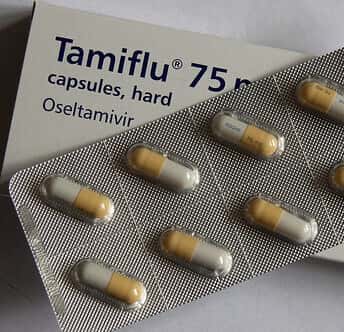
Coronavirus has been capturing headlines around the world for good reason. We are getting closer to 100,000 people infected with COVID-19. It won’t be long before 2,000 deaths will have been reported in China. In the meantime, though, influenza is the main event in North America. According to the CDC, somewhere between 20 and 30 million Americans have been hit with the flu this year. There is likely to be high-level influenza activity for several more weeks. We do not yet know how well the vaccine is working. In the meantime can Tamiflu (oseltamivir) help? This reader has an interesting story to share:
Can Tamiflu (Oseltamivir) Help Against Influenza?
Q. Last week I came down with a horrible cough, followed within a few hours by fever and exhaustion. By the next morning, I had muscle aches and figured I had caught the flu.
The weather was dreadful. I didn’t have the energy to drag myself to the doctor’s office. So, when I saw that the practice had an e-visit option, I used it. I was very disappointed.
A doctor I’ve never met responded that I didn’t meet the criteria for treatment because I don’t have chronic heart or lung disease and I’m not being treated for cancer.
Instead, he told me to take Tylenol and ibuprofen, stay hydrated and wash my hands frequently. He assured me that my symptoms would probably improve within ten days.
Needless to say, that wasn’t very helpful. I didn’t want to spend ten days in bed if I didn’t have to. I called my regular doctor, who said I should come in to be tested.
I’m glad I braved the bad weather. The test showed I had type A flu and she prescribed oseltamivir (Tamiflu). I started taking it and felt noticeably better by the next day. My cough has almost disappeared, and my temperature is back to normal.
I understand that doctors want to make sure you really have flu before they write a prescription. I don’t understand why they would have an e-visit protocol that essentially says, just suffer.
A. We don’t understand that, either. The CDC acknowledges that antiviral medications can be helpful. The agency lists four drugs that may be prescribed to treat outpatients with acute uncomplicated influenza. Two are pills: oseltamivir (Tamiflu) and baloxavir (Xofluza). Zanamivir (Relenza) is inhaled and peramivir (Rapivab) is given by IV injection.
Antiviral drugs won’t work well if they are taken too long after influenza takes hold. This reader wanted to know why Tamiflu did not work:
Oseltamivir | Tamiflu Did Not Work. What Went Wrong?
Some people say Tamiflu helps them get over the flu. Others report that Tamiflu did not work. What’s the real story here? What Tamiflu side effects should you watch out for?
To find out why Tamiflu failed in this case click on this link. It will answer the question can Tamiflu (oseltamivir) help? In addition, it will reveal why so many health professionals remain skeptical about antiviral medications. Is their caution justified?
If a family member comes down with the flu, can Tamiflu (oseltamivir) prevent other family members from getting sick? There is evidence to suggest the drug does protect against influenza (Internal Medicine, Feb. 15, 2018).
Share your own experience with Tamiflu (oseltamivir) in the comment section below.
Citations
- Hagihara M et al, "The prophylactic effect of anti-influenza agents for an influenza outbreak in a university hospital." Internal Medicine, Feb. 15, 2018. DOI: 10.2169/internalmedicine.8854-17

